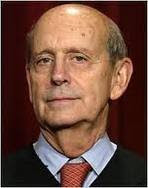



The SDFLA Blog is dedicated to providing news and notes regarding federal practice in the Southern District of Florida. The New Times calls the blog "the definitive source on South Florida's federal court system." All tips on court happenings are welcome and will remain anonymous. Please email David Markus at dmarkus@markuslaw.com




1) The right of students to be given an unbiased legal education shall not be infringed. [And enforced by a well regulated militia. Amend. II]
2) The right of students to take exams that proportionally cover the material discussed in class and presented in the required reading shall not be contravened. [Or Else Cruel and Unusual Punishment Shall be Inflicted on the Professor. Amend. VIII]
[To reduce professor autonomy in the classroom, all professors shall blow a foghorn in class before lecturing on any tested material.]
3) The right of a student to receive a clear explanation from the professor as to how the student received their grade on any graded assignment. [And then petition the Administration for a redress of grievances. Amend. I]
Hey, I'm all for student energy but let's breathe a little. Yes, UM, like a lot of law schools, has a large student class in a depressed job market. So, I have a lot of sympathy for those hard-working students knee-deep in loan debt stressing about their future. Grades matter. I get that.
But, here's the teachable moment. Law students learning how to succeed under a professor's rules in the classroom is great training for . . . being a lawyer. We practitioners have our own professors (they're called Judges) and they lecture us on courtroom practice, not the other way around.



 You know you've been a bad boy when your lawyer agrees to a low-end sentence of 27 years. Abduwali Muse, the sole survivor of a four-person Somali pirate gang that hijacked the Maersk Alabama in April 2009, will be sentenced Wed. in the SDNY. Muse and his cronies kidnapped 53 people in a five-week stretch before a daring Navy Seal raid freed the hostages. The plea deal avoided a conviction for federal piracy which carries a mandatory life sentence. Muse was somewhere between 16 and 18 years of age at the time of the spree. Prosecutors are arguing for the high-end range which is just shy of 34 years. The NYT has coverage here.
You know you've been a bad boy when your lawyer agrees to a low-end sentence of 27 years. Abduwali Muse, the sole survivor of a four-person Somali pirate gang that hijacked the Maersk Alabama in April 2009, will be sentenced Wed. in the SDNY. Muse and his cronies kidnapped 53 people in a five-week stretch before a daring Navy Seal raid freed the hostages. The plea deal avoided a conviction for federal piracy which carries a mandatory life sentence. Muse was somewhere between 16 and 18 years of age at the time of the spree. Prosecutors are arguing for the high-end range which is just shy of 34 years. The NYT has coverage here.